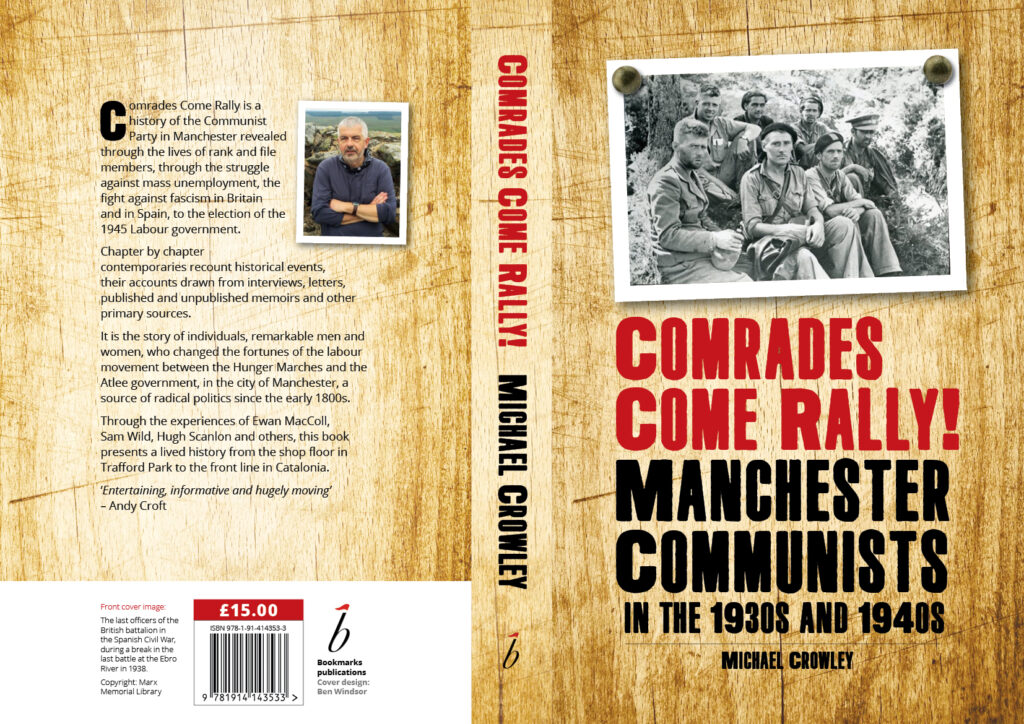
Comrades Come Rally is a history of the Communist Party in Manchester revealed through the lives of individual members, through the struggle against mass unemployment, the fight against fascism in Britain and in Spain, to the end of the Second World War. Chapter by chapter contemporaries narrate events, their accounts drawn from interviews, letters, published and unpublished memoirs and other primary sources. It is the story of individuals, remarkable men and women, who changed the fortunes of the labour movement between the Hunger Marches and the Atlee Government in the city of Manchester – a source of radical politics from the early 1800s onwards. Through the voices of Ewan MacColl, Sam Wild, Hugh Scanlon and others, this book presents a lived history from the shop floor to the front line. Available from Bookmarks
“Entertaining, informative and hugely moving.” Andy Croft.
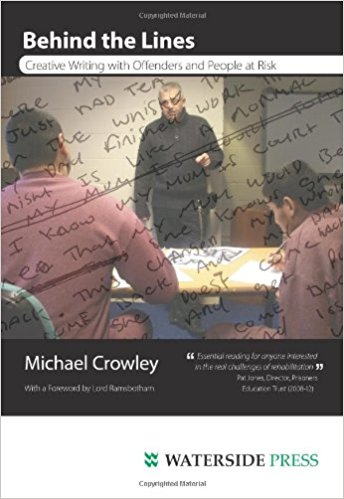
A book for anyone concerned about the level of literacy amongst prisoners. Behind The Lines is the product of some 15 years of working with offenders and people at risk in prison and in the community. It is based on the author’s extensive experience of using creative writing to change and improve thinking and behaviour to prevent crime. It includes easy-to-read explanations of the method; dozens of practical exercises and ideas for discussion; advice about the different approaches; samples of writing by offenders, inside and outside of prison; and the author’s views about what works to engage and encourage (often) wary participants. Behind the Lines represents a major contribution to rehabilitative work (in one sense it is the prison-writing equivalent of the highly successful Waterside Press publication, The Geese Theatre Handbook. A key resource for: writers in residence; offending behaviour workers; youth workers; youth offending teams; therapists and counsellors; special needs workers and teachers; and anyone tackling literacy levels of risk groups. See The Custodial Review
Reviews
‘A wake-up call to the educational system, which allows so many young people to leave school in the parlous position that he describes, and which creative writers up and down the country are devoting so much time and effort to mitigate’ Sir David Ramsbotham
‘Shows how you can turn the lead of anger and despair in prisoners into the gold of insight and creativity’ Oliver James, author.
‘Essential reading for anyone interested in the real challenges of rehabilitation’ Pat Jones, Director of the Prisoners Education Trust (2008-12).
‘In Beyond the Lines he addresses some of the major problems affecting our society…’ lipstick socialist
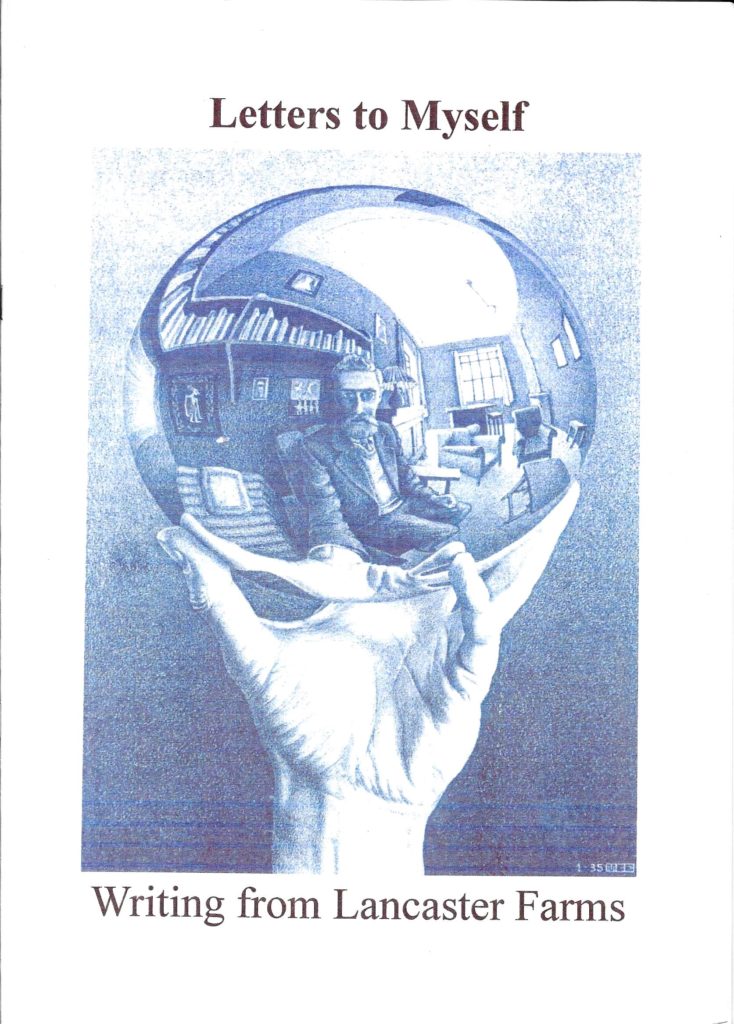
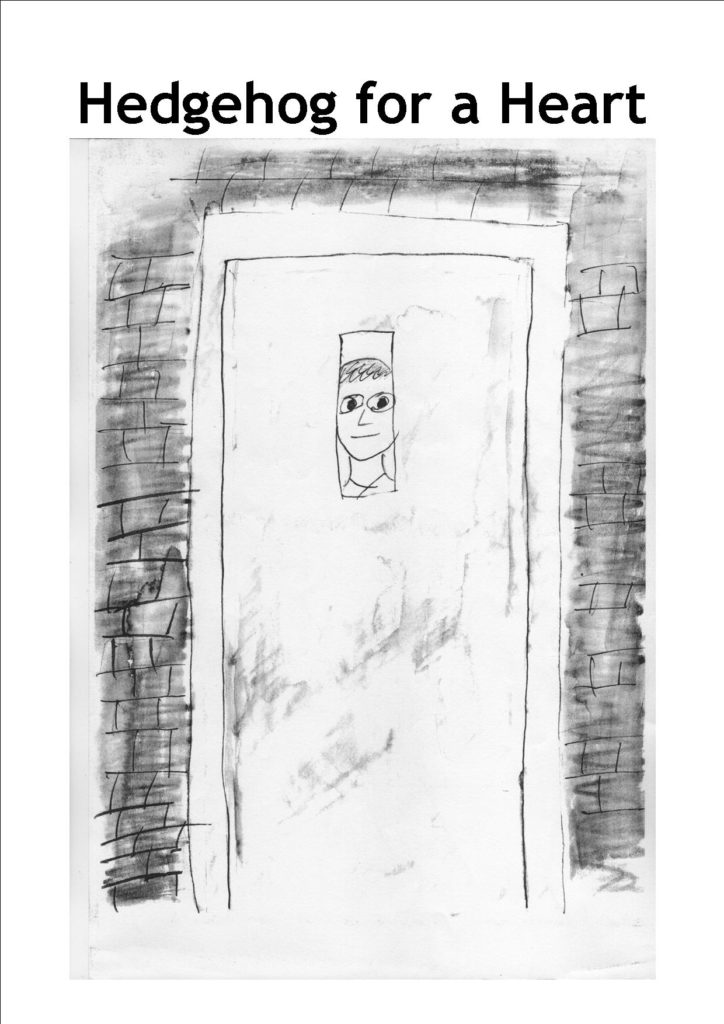
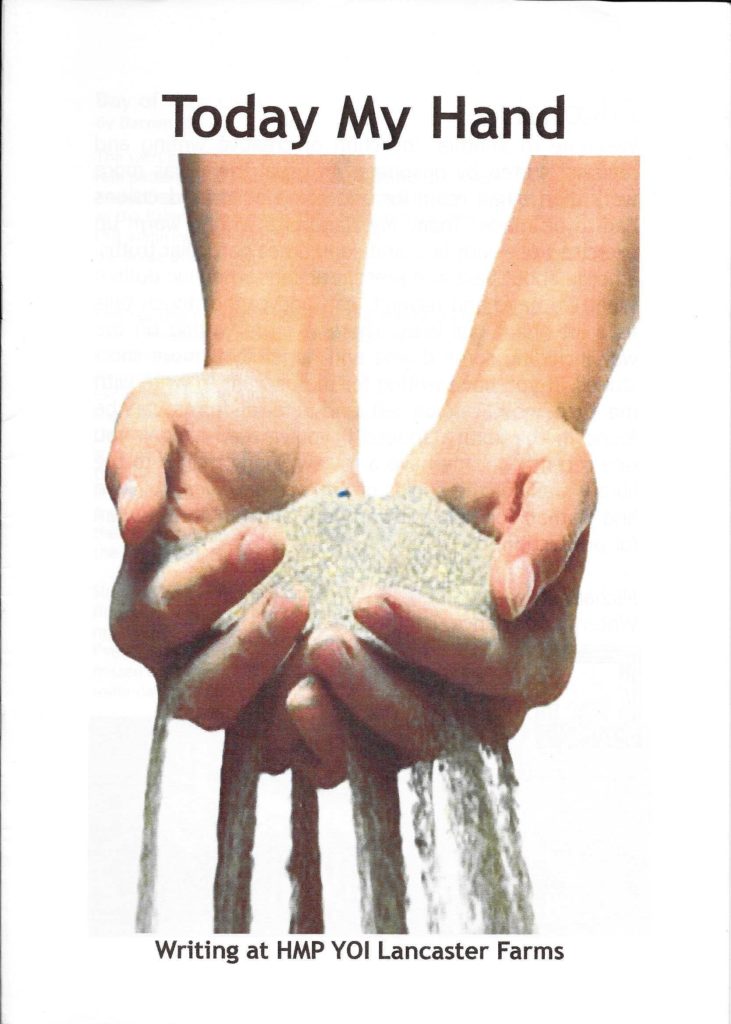
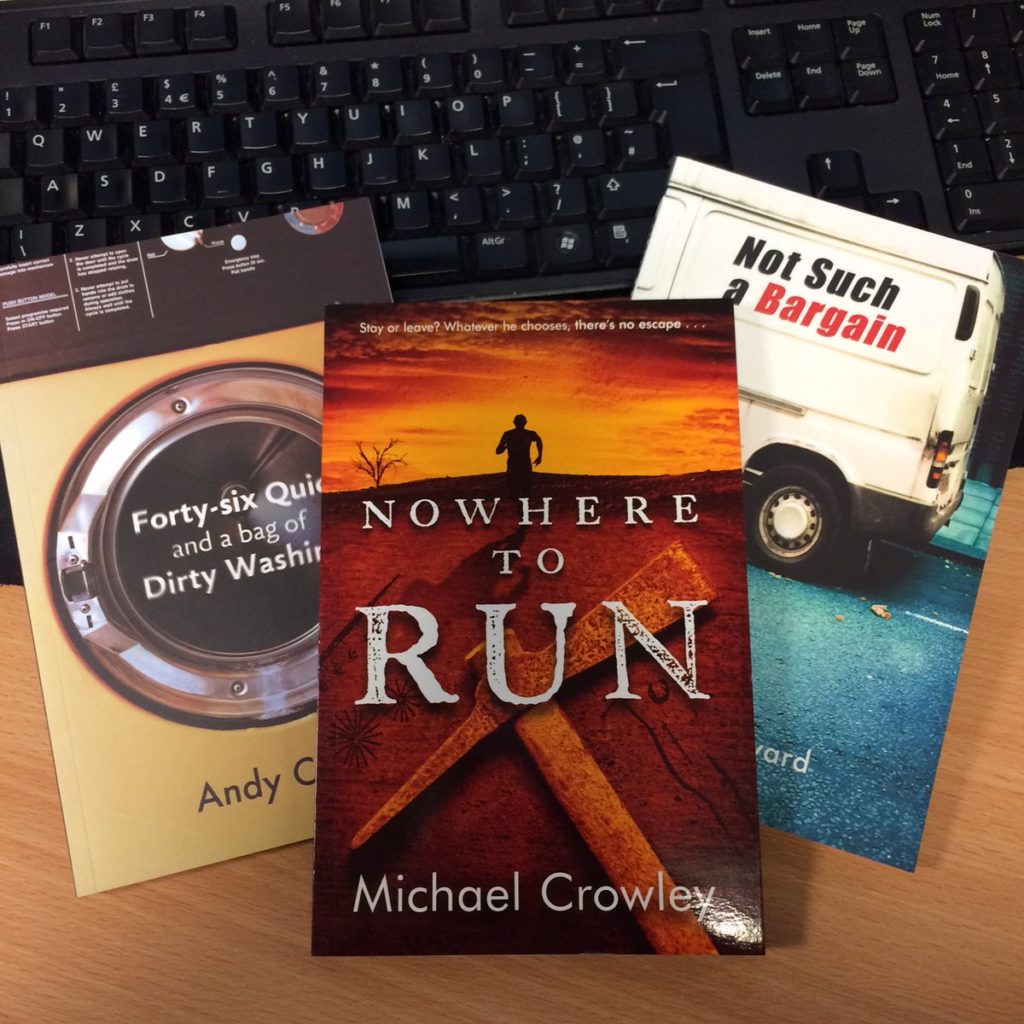
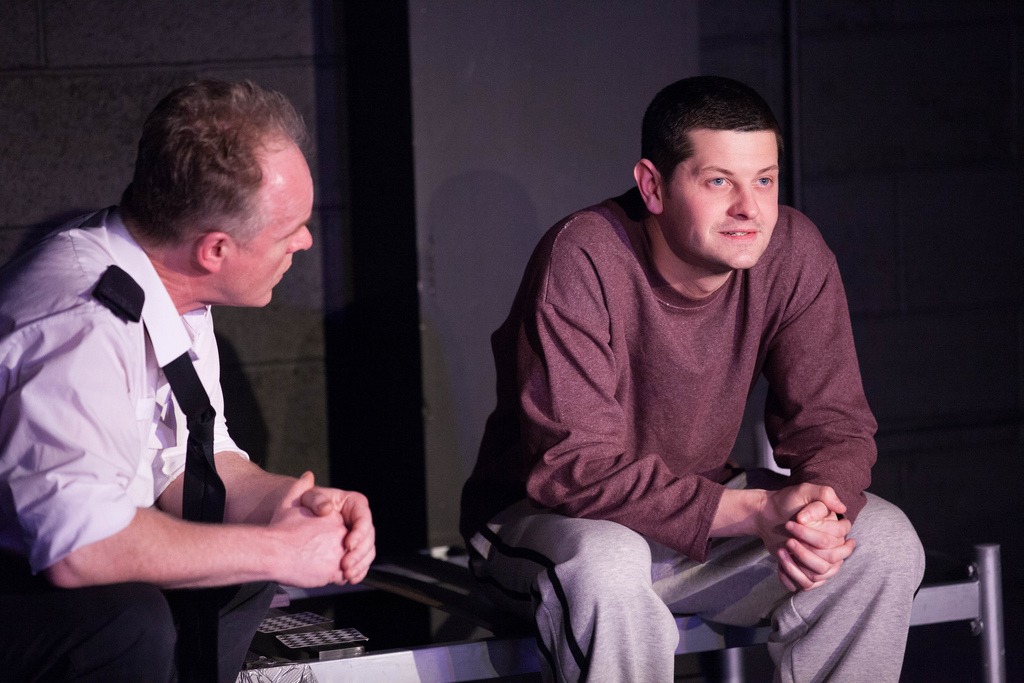
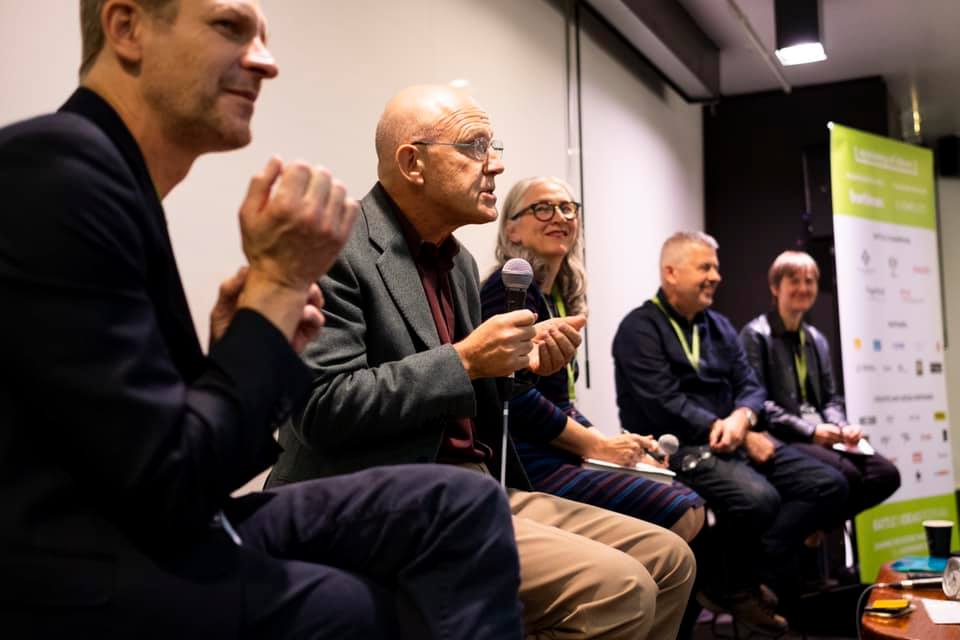
Chapter and Verse
The Role of Creative Writing in Reducing Re-offending
From Prison Service Journal # 214 July 2014
‘People benefit because it’s a way to unlock hidden emotion. It’s a way of being understood. It’s a way to get out of this world and into another where anything can happen. I’ve tried to write from a victim of crime perspective, and the truth is, I’ve never thought like this before. I’ve never even bothered about people I don’t know. I’ve always thought, if I don’t know someone, why should I care? Writing from their perspective makes me think about their lives.’ Michael, (Prisoner) H M YOI Lancaster Farms [1]
I was writer in residence at HM YOI Lancaster Farms for over six years; before that I worked in youth theatre, before that I was a youth justice worker in Greater Manchester for seven years, before that I worked in an open YOI. This is an article about getting people in custody to write, and about writing with them and what that teaches us both. It is about how creative writing can be used as a means not just for self-expression, improved literacy and concentration, but also for assessment, for developing moral reasoning and empathy, for tackling pro criminal thinking; as a means for a number of interventions and as an intervention itself.
That creative writing can play a part in the process of desistance I believe is now widely accepted in prisons and probation.[2] What is less well established is a closer scrutiny of the methods involved, the deliberate development of a practice of applied creative writing, an examination of what works and what doesn’t.
‘You cannot be a writer and a thug. To describe how someone may be feeling in a situation shows you have empathy or an understanding of how actions affect other people, you are sensitive. I think writing really helps to make people more compassionate and thoughtful.’ Jack, H M YOI Lancaster Farms
Read the rest of this article here